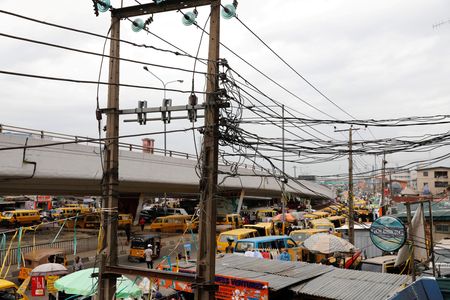By Camillus Eboh
ABUJA (Reuters) – Nigeria’s electricity regulator on Wednesday approved an increase in tariffs for better off consumers who use the most power as the government tries to wean the economy off subsidies to ease pressure on public finances.
On Tuesday, presidential spokesperson Bayo Onanuga told Reuters that the government planned to axe an electricity subsidy for 15% of consumers to reduce its $2.6 billion cost.
The vice chairman of the Nigerian Electricity Regulatory Commission (NERC), Musiliu Oseni, said the increase would take effect immediately.
“The commission has approved a rate review of 225 naira per kilowatt hour from a maximum of 68 naira per kilowatt hour … for just under 15% of the customer population in the Nigerian electricity supply industry,” Oseni said.
Oseni said the commission would categorise customers using data from electricity distributors.
Nigeria, Africa’s most populous nation, faces perennial power shortages that have contributed to years of weak growth.
Removing electricity subsidies is part of President Bola Tinubu’s reform agenda, after he last year scrapped a popular but costly fuel subsidy and allowed the currency to devalue sharply.
The reforms that Tinubu hopes will revive growth have stoked inflation to more than 30% and worsened a cost of living crisis, angering workers.
The World Bank has in the past recommended subsidy cuts to help Nigeria improve the state of its public finances.
Nigeria last reviewed electricity tariffs in 2020.
Its electricity sector faces a myriad of problems including a failing grid, gas shortages, high debt and vandalism. The country has 12,500 megawatts of installed capacity but produces only about a quarter of that, leaving many Nigerians reliant on expensive diesel-powered generators.
State-controlled power tariffs are too low to attract new investors and allow distribution firms to recoup costs and pay generating companies – leaving the sector with ballooning debts.
(Reporting by Camillus Eboh; Writing by Chijioke Ohuocha; Editing by Mark Potter and Ros Russell)









